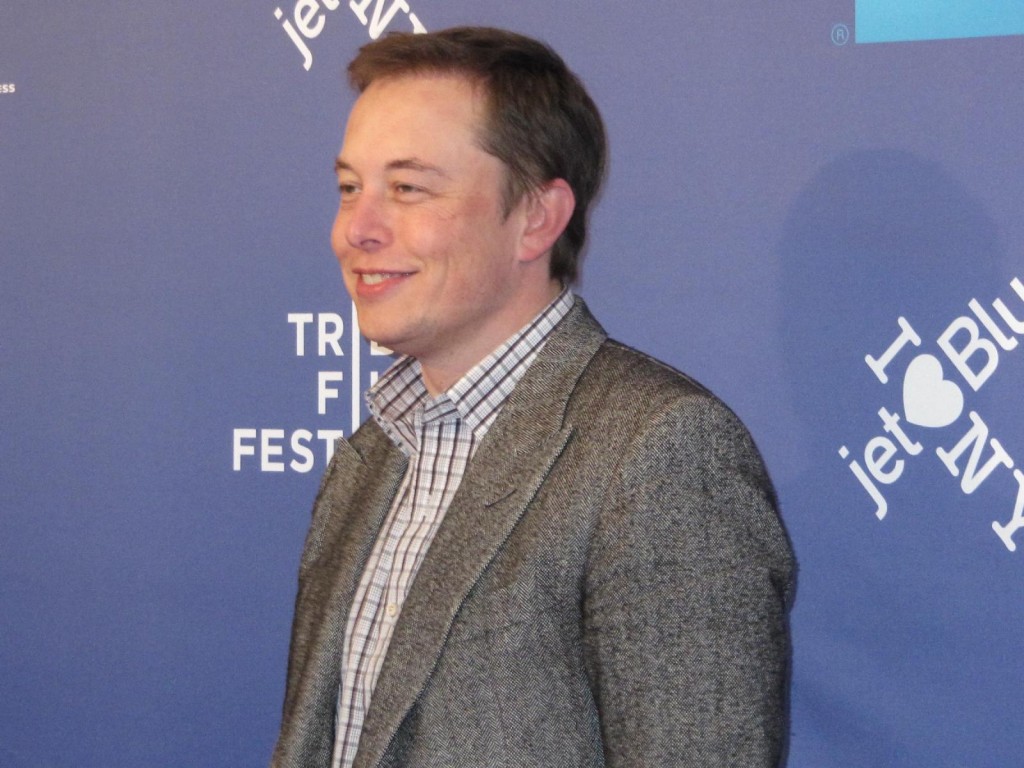
'Revenge of the Electric Car' premiere: Tesla Motors CEO Elon Musk on red carpet
It's one of the messages conveyed in a terse post from CEO Elon Musk on the Tesla Motors Blog. And it could be good news for electric-car drivers, and the electric-car market.
ALSO SEE: Stock Commentator Jim Cramer Caught Off Guard By Tesla-Fan Ferocity
In the post, from this morning, Musk said that Tesla's wall of patents has been removed, “in the spirit of the open source movement, for the advancement of electric vehicle technology.”
“Tesla will not initiate patent lawsuits against anyone who, in good faith, wants to use our technology,” Musk continued, explaining that he soured with patents after his first company, Zip2.
Tesla CEO: Patents stifle progress
While patents might have been good in the past, Musk argued, they too often today serve to stifle progress, entrench giant corporations, and pad lawyers' pockets. “After Zip2, when I realized that receiving a patent really just meant that you bought a lottery ticket to a lawsuit, I avoided them whenever possible.”
Although Musk's post had nothing more to say about how this would work, it's essentially an open invitation for another charging company, or automaker, to take up its 'Supercharger' standard for fast-charging -- in future vehicles, of course.
Musk had already made comments to a reporter earlier this week, confirming that automakers would have to meet the (higher) power level of the Superchargers, and would have to “agree with the business model, which is, we don't charge people on a per-charge basis.”
DON'T MISS: Tesla Model S Electric Car: Software Updates Since 2012
Time will also tell what Musk refers to as 'good faith.' It could mean contributing to shared costs of maintaining the network, using the power itself, or pooling resources from those other companies to collaboratively move the technology forward.
2013 Tesla Model S at Supercharger station on NY-to-FL road trip [photo: David Noland]![2013 Tesla Model S at Supercharger station on NY-to-FL road trip [photo: David Noland] 2013 Tesla Model S at Supercharger station on NY-to-FL road trip [photo: David Noland]](https://images.hgmsites.net/lrg/2013-tesla-model-s-at-supercharger-station-on-ny-to-fl-road-trip-photo-david-noland_100454646_l.jpg)
Of course, this could also be bad news for the new Combined Charging System (CCS), which has been adopted by U.S. and German automakers but has been very slow to deploy. Today in the U.S., it remains far fewer than the CHAdeMO fast-charge systems (Nissan, Mitsubishi, Kia) that are relatively common on the West Coast and in some other electric-car hubs.
“Technology leadership is not defined by patents, which history has repeatedly shown to be small protection indeed against a determined competitor, but rather by the ability of a company to attract and motivate the world's most talented engineers,” Musk argued.
That could be a challenging request, to an industry that's already infamous for lawsuits over minor convenience features. The smartphone wars might have been lesson enough, and perhaps today's move will help assure electric cars don't have to go down that road.
_________________________________________













